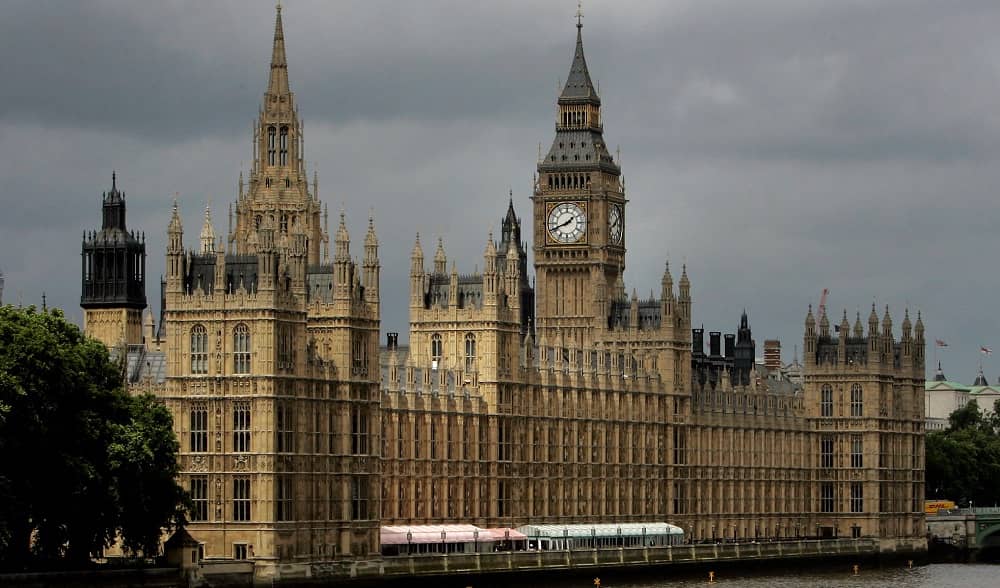At a parliamentary debate on February 27, 2025, members of the UK House of Lords have strongly criticized the Iranian regime’s human rights violations, raising concerns over the arbitrary detention of British and dual nationals, the systematic persecution of religious minorities, and the regime’s increasing use of the death penalty as a means of political repression.
During a parliamentary debate, the Bishop of St. Albans specifically highlighted the cases of political prisoners Behrouz Ehsani and Mehdi Hassani, who are at imminent risk of execution under charges of “armed rebellion against the state.” Calling for urgent intervention, he urged the UK government to “do all they can” to prevent their execution and address Iran’s escalating use of the death penalty, which he described as “truly harrowing.”
Parliamentarians also raised concerns over the regime’s systematic persecution of religious minorities, with the Bishop of Chelmsford noting that “religious freedom is severely curtailed for everyone except Persian-speaking Shias.” He added that Christian converts from Islam face some of the harshest repression, including arrests, imprisonment, and false charges of acting against national security.
🕚 #HouseOfLords from 11am includes:
🟥 affordable rents
🟥 screening for prostate cancer
🟥 copyright and AI
🟥 compensation for Post Office Horizon scandal victims
🟥 British citizens held in Iran
🟥 prenuptial agreements
➡️ See full schedule https://t.co/YgPInr8Hpp pic.twitter.com/T5LcAf1mwr
— House of Lords (@UKHouseofLords) February 27, 2025
A central focus of the debate was Iran’s continued detention of British and dual nationals, with lawmakers acknowledging that over 60 foreign individuals have been detained in Iran since 2010, 16 of whom had British or dual nationality. These individuals are often arrested on fabricated charges, denied fair trials, and used as political bargaining chips.
The Bishop of Chelmsford called for greater international pressure on Iran, stating: “Let us call this situation out for what it is. Other countries, such as France, are willing to do so. The more European and other nations speak with one voice, the greater the pressure on Iran to change its approach.”
Parliamentarians also pressed for stronger measures to deter state hostage-taking, referencing the Canadian-led initiative against arbitrary detention, which the UK signed in 2021. Baroness Northover questioned the government’s approach, asking, “Other countries go about the release of their citizens differently from how the UK approaches it. Will the government review its practices?”
Behrouz Ehsani & Mehdi Hassani are at imminent risk of execution in Iran after a grossly unfair trial marred by allegations of torture and other ill-treatment to extract forced “confessions”. Iran’s authorities must halt their executions & release them NOW https://t.co/Ph4Q4GYi3q pic.twitter.com/teiyn2s2nA
— Amnesty Iran (@AmnestyIran) February 27, 2025
The Bishop of St Albans noted that Iran executed at least 901 people in 2024, including 40 in a single week in December. Additionally, concerns were raised over Iran’s growing military activities and nuclear escalation, with the Bishop of St Albans warning that “an increasingly desperate Iranian regime is an increasingly dangerous one.” He also underscored the need for tougher measures against Iran’s security forces, stating that “the revolutionary guard drove the taking of such hostages; what is the present Government’s view of the revolutionary guard?”
The UK government reaffirmed its commitment to addressing Iran’s human rights violations. Responding to calls for tougher measures, Lord Collins of Highbury, the UK’s Under-Secretary of State for Foreign, Commonwealth, and Development Affairs, confirmed that the UK has sanctioned 94 Iranian individuals and entities since 2022 for their roles in human rights abuses.
As the world of today is still plagued by evil states and various terror groups, it is imperative to get a good sense of #Tehran’s nefarious hostage-taking policy and the need for a different approach.https://t.co/ieaaOkZb6y
— NCRI-FAC (@iran_policy) April 18, 2023
He also reiterated that the UK government advises against all travel to Iran, emphasizing that “having a British passport or connections to the United Kingdom can be reason enough for the Iranian authorities to detain someone.”
As Iran’s human rights crisis deepens, British lawmakers continue to push for stronger measures to hold the Iranian regime accountable. The debate underscored growing calls for international coordination in addressing Iran’s use of hostage diplomacy, systematic executions, and suppression of religious minorities.
